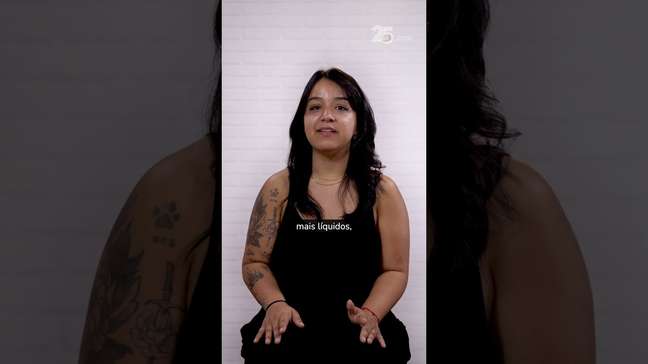The former president once again spread false news about the immunizer this Saturday; more than 514 million doses have been applied in Brazil
After the former president Jair Bolsonaro (PL) Let’s go back to spreading false news about vaccines against COVID-19, specialists ensure the safety of immunizers. This Saturday, 17, the former president said that the composition of immunizers will include graphene which, according to him, would accumulate “in the testicles and ovaries”. None of the vaccines used in Brazil contains graphene in its composition, nor is the component mentioned in the package inserts of Pfizer, CoronaVac, Janssen and Oxford/AstraZeneca/Fiocruz vaccines, which are distributed by the Unified Health System (SUS).
Local researchers and members of the National Health Surveillance Agency (Anvis) also explain that the vaccine approval process is rigorous and tests not only the efficacy of the immunizers, but also their safety for the population. Currently, there are four ways to make vaccines available in the country: registration, emergency use, exceptional importation or through the World Health Organization’s (WHO) Covax Facility Consortium.
Graphene is one of the forms of carbon., extremely thin, strong, transparent and light, as well as being able to conduct electric currents. Made up of pure carbon – also present in diamond – the material is obtained by extracting graphite. In 2021, a video posted on a Telegram channel falsely claimed that Pfizer had patented a system to track people immunized against covid-19 and that it would have graphene in the composition of the vaccine.
“No vaccine approved in Brazil has graphene. We cannot forget that the covid-19 virus is still circulating and affecting Brazilians. It is very important that everyone fights the rumors and misinformation about vaccines that have spread through social networks.” Stadium the director of Anvisa, Meiruze Freitas, responsible for the analysis of immunizers at the agency.
At the outset of research to develop a vaccine, developers perform non-clinical tests to identify the best platform for achieving immunization. At this point animal analyzes and laboratory tests are performed. Next, the immunizer needs to undergo clinical trials in humans.
In the first phase of human trials, vaccine safety and acceptable reactions are evaluated. Then, the dose of the vaccine is dimensioned, on what schedule it should be administered and what its ability to produce immunity is. In phase 3, large population studies are conducted to evaluate the safety and efficacy of the vaccine. Even after a vaccine gets Anvisa approval, the vaccine’s performance continues to be monitored by the agency, and adverse events must be reported to the agency.
A virologist at the UFMG Vaccine Technology Center, Flavio da Fonseca, adds that manufacturers submit a document proving any contaminants that may be contained in the vaccine. The tolerable levels of these substances are established by legislation so that they do not harm human health.
“Certainly graphene is not stored in any quantity and in this type of documentation that the manufacturer sends to show the contaminants in the vaccine, they have to show all the elements that are present in a formulation and shouldn’t be there and are considered contaminants” These are considered contaminants. Tests are done independently, not just by the manufacturer. And certainly if there was contamination by an important element such as graphene, which is an element foreign to the formulation of a vaccine, it would be detected”, explains the researcher. “This type of discourse is completely inconsistent with Anvisa’s role. a contaminant as important as graphene passes through Anvisa, it would be better not to have it. This is a fallacy, a false revelation, based on principles that are not scientific, “criticized the researcher.
Since the beginning of vaccination against covid-19 in Brazil, approximately 514.9 million doses have been applied in the country. About 190 million Brazilians have received the first dose or single dose of the coronavirus vaccine. So far, Anvisa has only received around 21,000 reports of suspected adverse events allegedly related to vaccines.
The first immunizers against covid-19 were applied in the country in January 2021. Since then, according to experts, vaccination has been primarily responsible for controlling the pandemic and reducing the number of deaths related to the disease. Brazil has accumulated more than 700,000 lives lost to the coronavirus since the pandemic began in 2020.
Source: Terra
Ben Stock is a lifestyle journalist and author at Gossipify. He writes about topics such as health, wellness, travel, food and home decor. He provides practical advice and inspiration to improve well-being, keeps readers up to date with latest lifestyle news and trends, known for his engaging writing style, in-depth analysis and unique perspectives.




![Tomorrow belongs to us in advance: Audrey between life and death .. which awaits you for a week [SPOILERS] Tomorrow belongs to us in advance: Audrey between life and death .. which awaits you for a week [SPOILERS]](https://fr.web.img6.acsta.net/img/9f/9e/9f9eb4c68341927da3660afa32ac7885.jpg)


